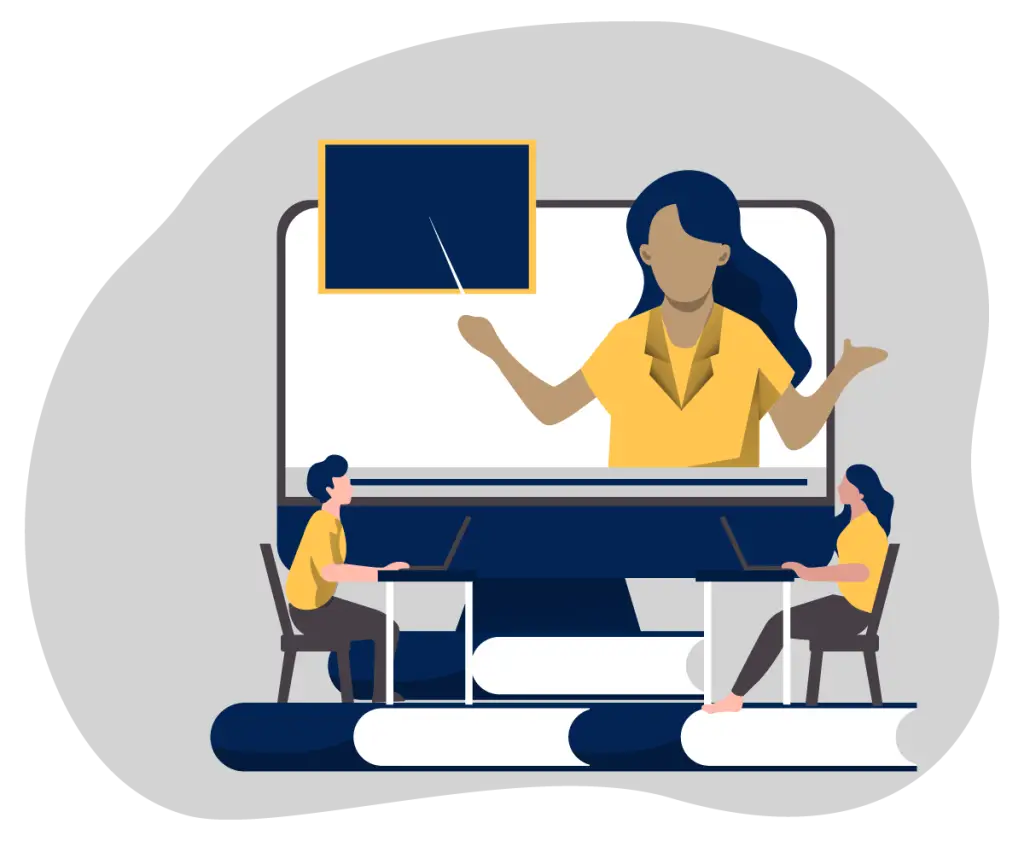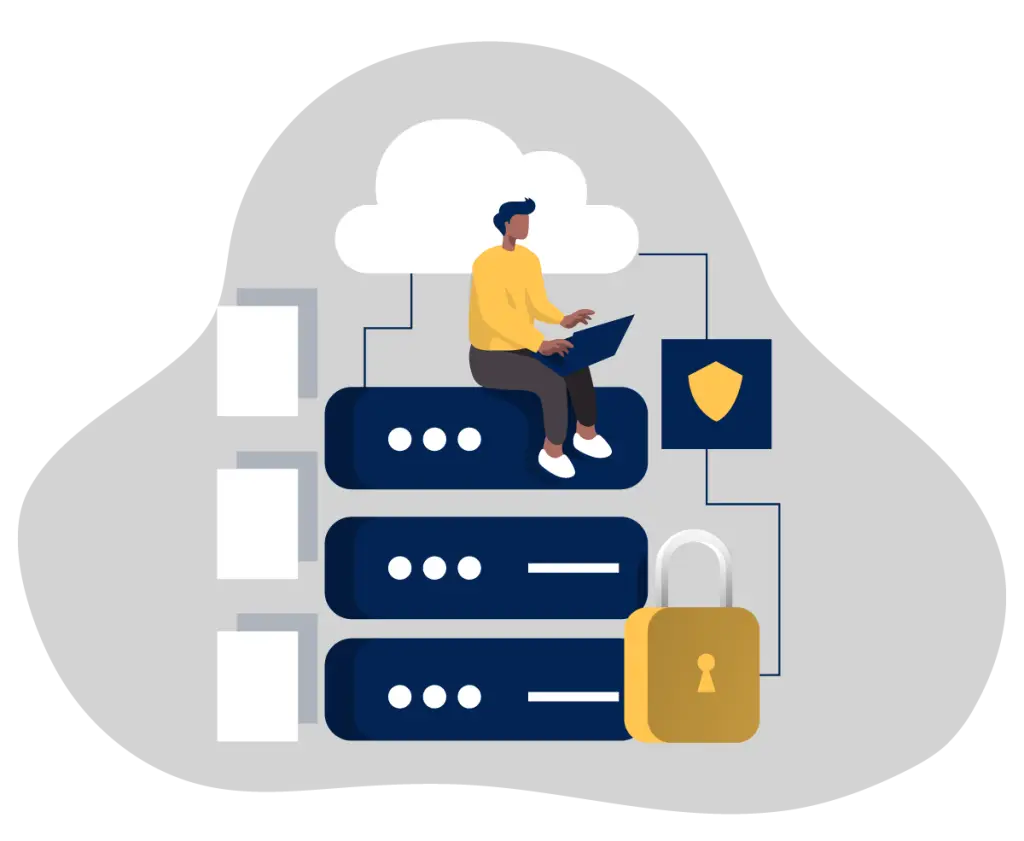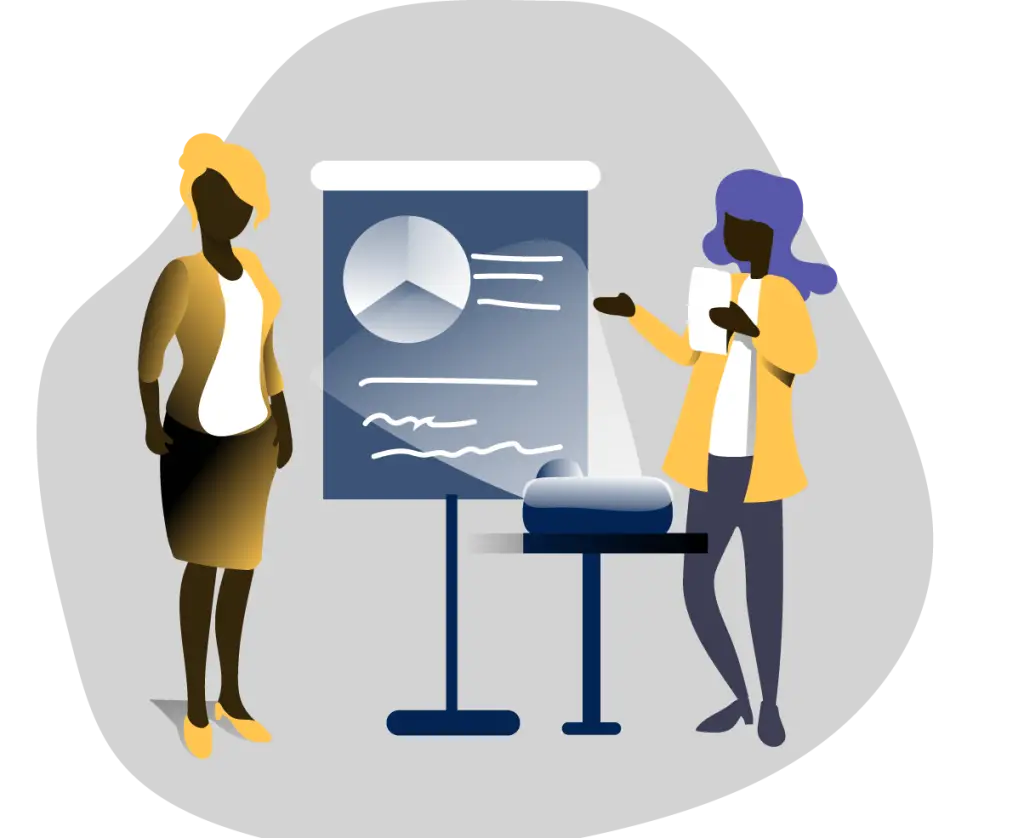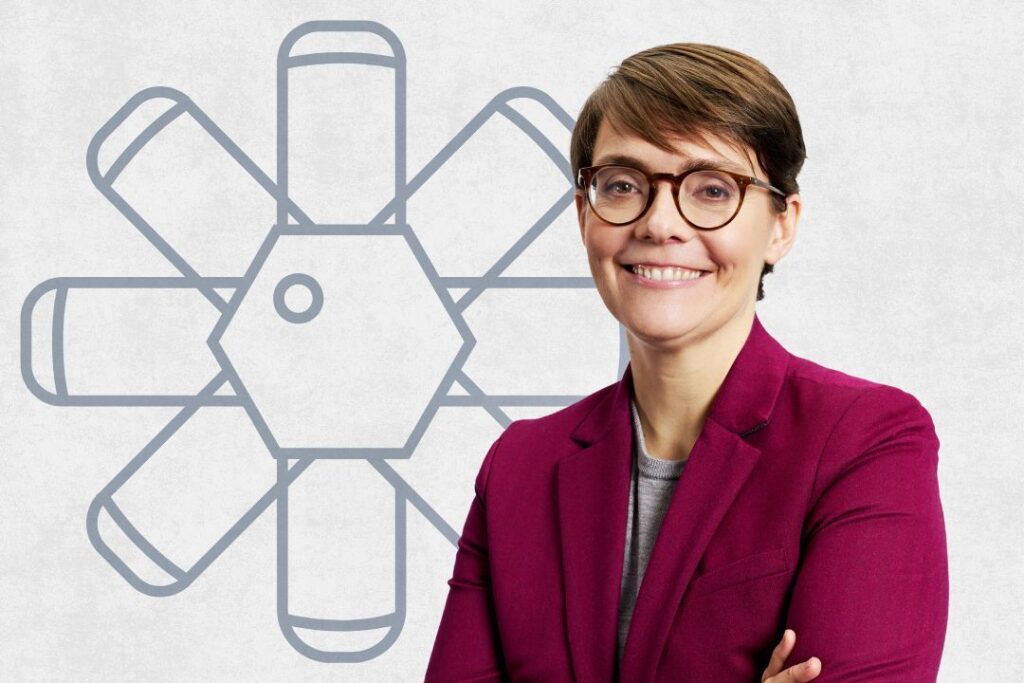Katie Gibson is the Director of the Catalyst Cyber Clinic — offering free, actionable cybersecurity support for non-profits and other community organizations, delivered by trained Catalyst consultants.
They’re trying to save lives with one arm tied behind their back. If we support them to build their digital maturity and security, then we’re helping them to meet this really difficult moment that they — and we — are in.
Katie Gibson is on the phone. It’s one of many instances in the decades she’s been making change that she’s conversing about a critical matter in a critical moment. This time, it’s with a high-risk organization.
The call is precarious. These organizations are used to being targeted, but that doesn’t make it any less unmooring when it happens. Many are small, with sensitive information. Katie is deeply immersed in the complex and critically important work of addressing vulnerable communities that are affected by targeted cyberattacks.
On the other side of the phone call, Katie returns to the work of the Catalyst Cyber Clinic. Amid turmoil, it gives her peace to work on the solution. In Canada, reported targeted cyberattacks have increased significantly, and community organizations are caught in the net. This is the work on the Clinic’s radar.
Katie is fighting back. The Clinic is the first of its kind in Canada.
These organizations serving communities are being stretched – being asked to do more with less. Cybersecurity is the last thing on their mind.
Katie’s early interests laid a strong foundation for her later impact. She started her career as a community organizer. That experience, plus her graduate studies in business and law, built a robust toolkit to meet the complexities of her social impact work. During COVID, she co-founded the Canadian Centre for Nonprofit Digital Resilience. “I then saw an opportunity to take the lessons that I had learned — helping nonprofits use new tools and navigate emerging challenges — and apply them in this new context of cybersecurity,” says Katie. Once again, she rolled up her sleeves.
Part of what drives me is the really challenging environment that nonprofits are currently in — dealing with the aftermath of a global pandemic, the cost-of-living crisis, and the housing affordability crisis.
It was the high holidays when Katie was walking past a small synagogue. There was a police officer outside. There was private security. There were cameras. Katie has these moments – moments off the clock where she’s out in the world and she sees it happening – social and digital injustice.
It fuels her for the next round. And that brings up something unsaid.
It’s clear that Katie’s work, the work of the Clinic, deals with sensitive data. The information at stake involves sexual assault, addictions, mental health, domestic violence, and more. Organizations may have data on sexual or gender identity that, in the wrong hands, can cause real harm. Katie says, “The tragic irony of, say, a ransomware attack on a women’s shelter is that they’re paying out a ransom to a criminal organization that could well be engaged in trafficking of women and girls.”
What hasn’t been talked about as much is the cybersecurity of these organizations.
That’s where the Clinic comes in. In its pilot phase, the Clinic supported organizations nationwide serving communities at risk of hate-motivated crime.
As for learners, the Clinic draws from the Catalyst training programs. Every client who comes through the door receives a tailored Cybersecurity Action Plan offering low-cost recommendations. “You can’t do anything without that,” says Katie. If they already have that, the Clinic will provide additional services to improve their security.
This problem isn’t going to be solved organization by organization. It needs a sector-wide approach. And that’s what we’re doing at the Clinic.
Katie has leaned on her legal background to develop the Clinic. The Clinic is in fact modeled after legal clinics, which were a part of Katie’s educational training. “This idea was very attractive to me as a lawyer,” says Katie. “Most law students have the opportunity to benefit from clinic participation – getting hands-on, practical work experience. I can see the applicability to this other group of learners.”
Katie’s law degree is one component of her toolkit, and at this point, that toolkit is diverse. She smiles as she says she’s reaching for many different tools nowadays. The Clinic is, in part, an entrepreneurial experience. Like many aspects of Katie’s career, it’s an exercise in building something that did not exist before. The work has been about finding a pipeline of clients who can benefit from the services, determining how best to support them, and ensuring a consistent quality of support provided by Catalyst alumni. Despite the challenge, Katie says, “It’s been fun. We’re considering this group as a pilot, but we intend to broaden it to other groups in the future. This is a starting point for the clinic, a pilot.”
Non-profits face basically all the same risks of ransomware attacks or phishing as any of the other organizations. But they tend to be a lot less well equipped to meet them.
It’s cliché, Katie says, but cybersecurity is a team sport. And it’s true. “It’s what I’ve noticed about being a part of this community – people genuinely want to work together. They recognize the need to work together. And so I am certainly not in this alone; we have a great community around us to do the work.”
You don’t have to go far — a coffee shop, a dog park, or a schoolyard pickup area — to know that digital security threats impact people daily. Katie has four family members who have been victims of fraud. She thinks most people could relate. “It’s a problem that needs to be solved,” says Katie. “And it’s very motivating to try to solve that.” As for her ultimate hope, Katie wishes that any learner from a cybersecurity training program can have hands-on, practical clinic experience. Never one to back down from a challenge, Katie says, “We’re already looking nationwide. Joining a global movement would also be exciting.” What does that look like? Katie says that’s a bigger conversation.
That would be the dream, right?







